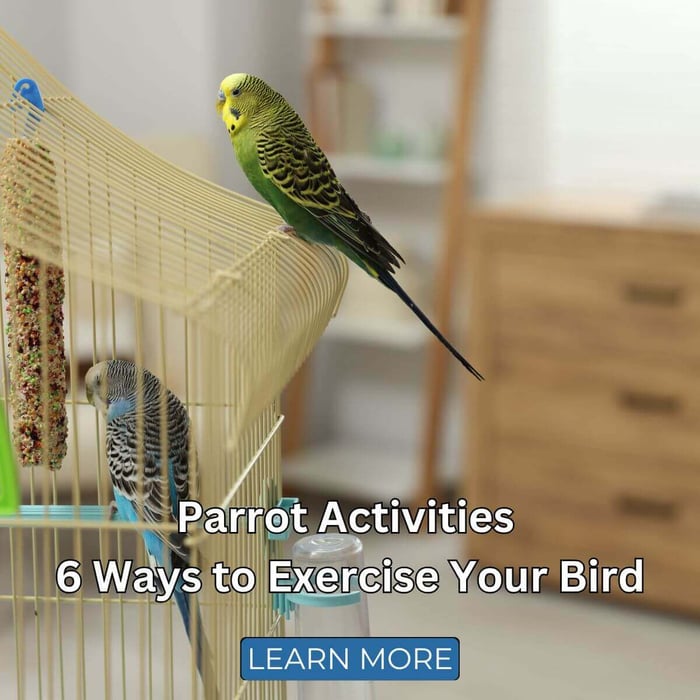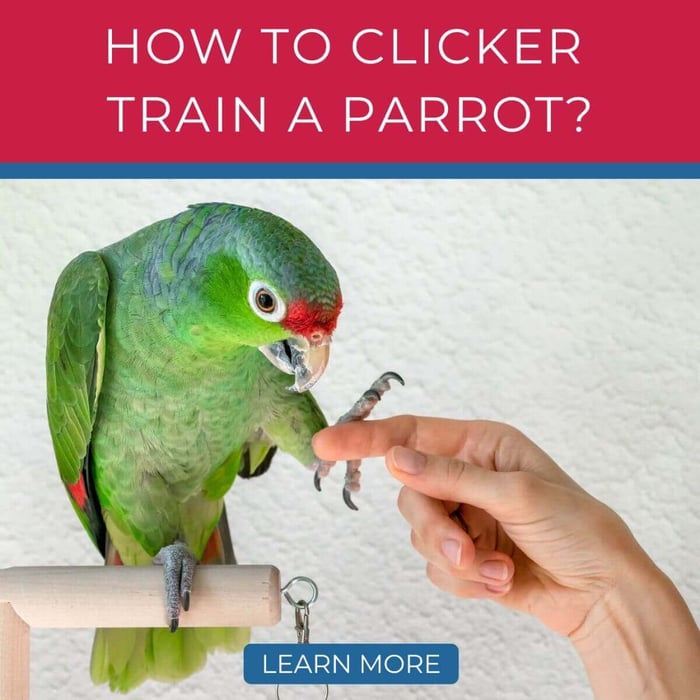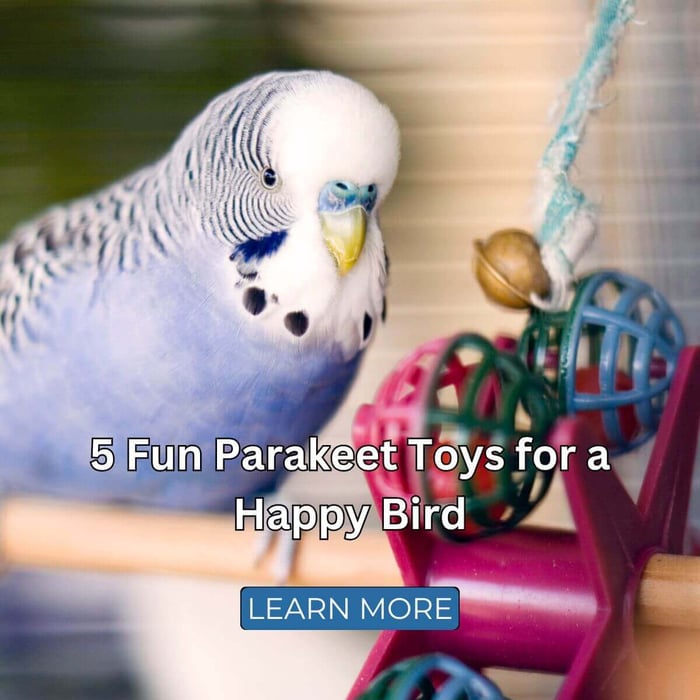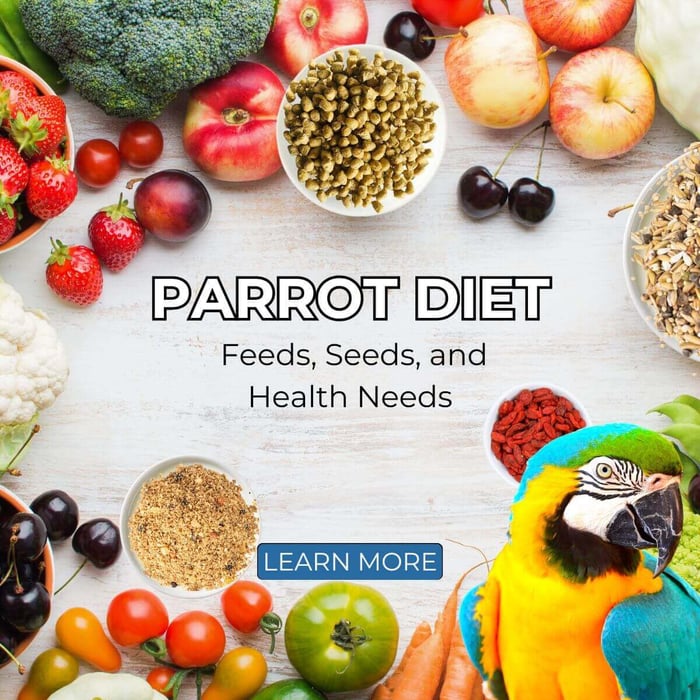Hormonal Parrot - Causes & Solutions
If your parrot suddenly seems to turn on you in every possible way, it can be easy to become frustrated with your bird. Many parrots end up being given away or end up lonely and ignored when owners have trouble interpreting their behaviours. As discussed in the article on parrot aggression, hormones can play a role. Let's go into the causes and symptoms of a hormonal parrot as well as what you can do to reduce unwanted hormonal behaviours.
What Causes a Hormonal Parrot?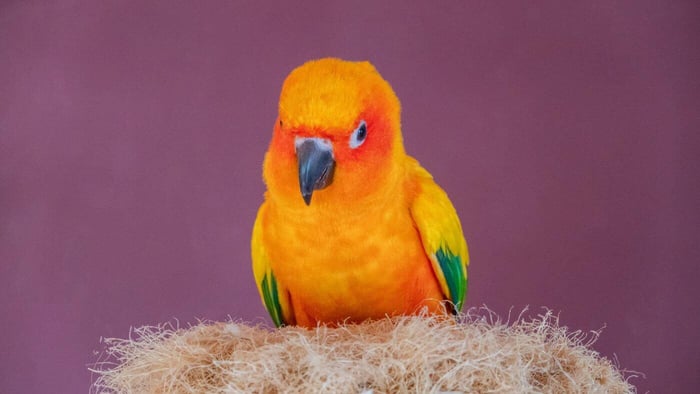
At the time of writing, spring is in full swing. The days are longer, temperatures are rising, and the birds outside are busy nesting. Even though your parrot lives indoors, it will still notice these changes in the environment. As much as we humans may not want our parrots to breed, they still feel the instinctual pull that spring triggers.
Parrots are highly sensitive to the changes in their surroundings, and just like wild birds, they may begin to feel the surge of hormones associated with the season. This often results in an increase in frisky behaviour, as your parrot may start feeling the urge to find a mate and seek out a nesting area.
The challenge arises because, unlike wild parrots, our pet birds do not have the opportunity to meet and bond with a mate, and they are often bonded to us instead. As a result, their hormones can be somewhat confusing, leaving them seeking outlets that are misdirected at their human caregivers. This hormone-induced frustration can cause a range of behavioural changes in your parrot.
What are the Symptoms of a Hormonal Parrot?
For some parrots, the change is like flipping a switch during spring, making it very clear what you're dealing with. Other times, it's a bit more difficult to figure out what's going on.
The behaviours below are some of those that can pop up in a hormonal parrot. Sometimes, they'll tick all of the boxes; other times, only one or a couple.
- Excessive vocalisation. A hormonal parrot can drive you up the wall with its never-ending screaming!
- Nesting. A hormonal parrot may start exhibiting nesting behaviours, such as chewing on items around the house or checking out nooks and crannies in its environment. You might also notice that your bird is more focused on certain spots in its cage or the house, potentially looking for places it can deem suitable for nesting. Be cautious, as this could lead to your bird becoming possessive of these areas.
- Aggression & territorial behaviour. During hormonal periods, a parrot might become more aggressive or territorial, especially if it finds a spot that it considers appropriate for nesting. In some cases, aggression may seem unrelated to nesting at all and could simply be a result of heightened hormonal activity. Aggressive parrots might display biting, lunging, or other forms of territorial defence, particularly towards their human caregivers or other pets in the home.
- Feather picking. Unfortunately, feather picking is another behaviour that may emerge in a hormonal parrot. If your bird begins pulling out its feathers, this could indicate stress or discomfort related to its hormonal state. Feather picking can become a serious issue and may warrant a visit to the vet to ensure there are no underlying health problems exacerbating the behaviour.
- Nesting & egg-laying. If you find an egg, just leave it, especially if your hen doesn't have a mate and any eggs are unfertilized anyway.
- Clingy & sexual behaviours. A hormonal parrot can become obsessed with its owner or even an item in its cage, such as a toy. And yes, your bird may actually use you or the toy in question to try to satisfy its sexual urges by regurgitating or rubbing. Aggression can pop up against those that it interprets as impeding access to their "love", like another family member.
- Bothering cage mates. If your parrot doesn't live alone, it might end up trying to woo other unwilling parrots. This can even happen if they're of the same gender or different species. Keep an eye on things to make sure the "victim" doesn't get harrassed too much.
If you have parrots of different genders, there's a good chance they'll start getting it on around this time. Make sure both are willing participants.
Helping a Hormonal Parrot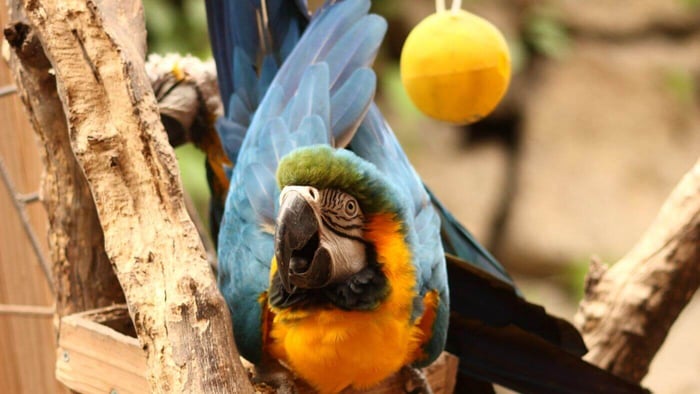
Dealing with the fallout of a hormonal parrot can be very challenging, we know. Take a deep breath and realize that your bird will likely mellow out when summer sets in. Also, don't forget that your avian vet might be able to help you out with this.
Additionally, here are some other things to keep in mind:
- Limit petting your parrot to its head and neck. Touching other parts of the body can be interpreted as sexual and exacerbate hormonal behaviours.
- Make sure your parrot gets plenty of sleep (at least 12 hours) in a fully dark room.
- Feed a healthy and varied diet, making sure that laying hens especially get plenty of calcium. Avoid sugary, high-calorie and warm foods.
- Give your parrot some new chewing toys and preening toys, as well as plenty of distraction.
- Remove anything that might be interpreted as a nesting site.
- Leave your parrot alone if it really doesn't want to interact. Just try again tomorrow!
Conclusion
Dealing with a hormonal parrot can be exasperating, but with the right approach, you can reduce unwanted behaviours and help your bird through this natural phase. Patience is key, as hormonal behaviours usually mellow out once the season changes. Understanding what's going on and taking steps to manage the situation can keep your bond with your parrot strong, and you'll find your beloved bird will return to its normal self in time.
Remember, you're not alone in dealing with a hormonal parrot—many bird owners experience the same struggles. Don't lose patience; your parrot is still the same bird you love, and it will return to its usual self once the hormonal rush passes. Keep calm, make adjustments where needed, and work with your bird's natural rhythms to ensure a harmonious and healthy relationship.

